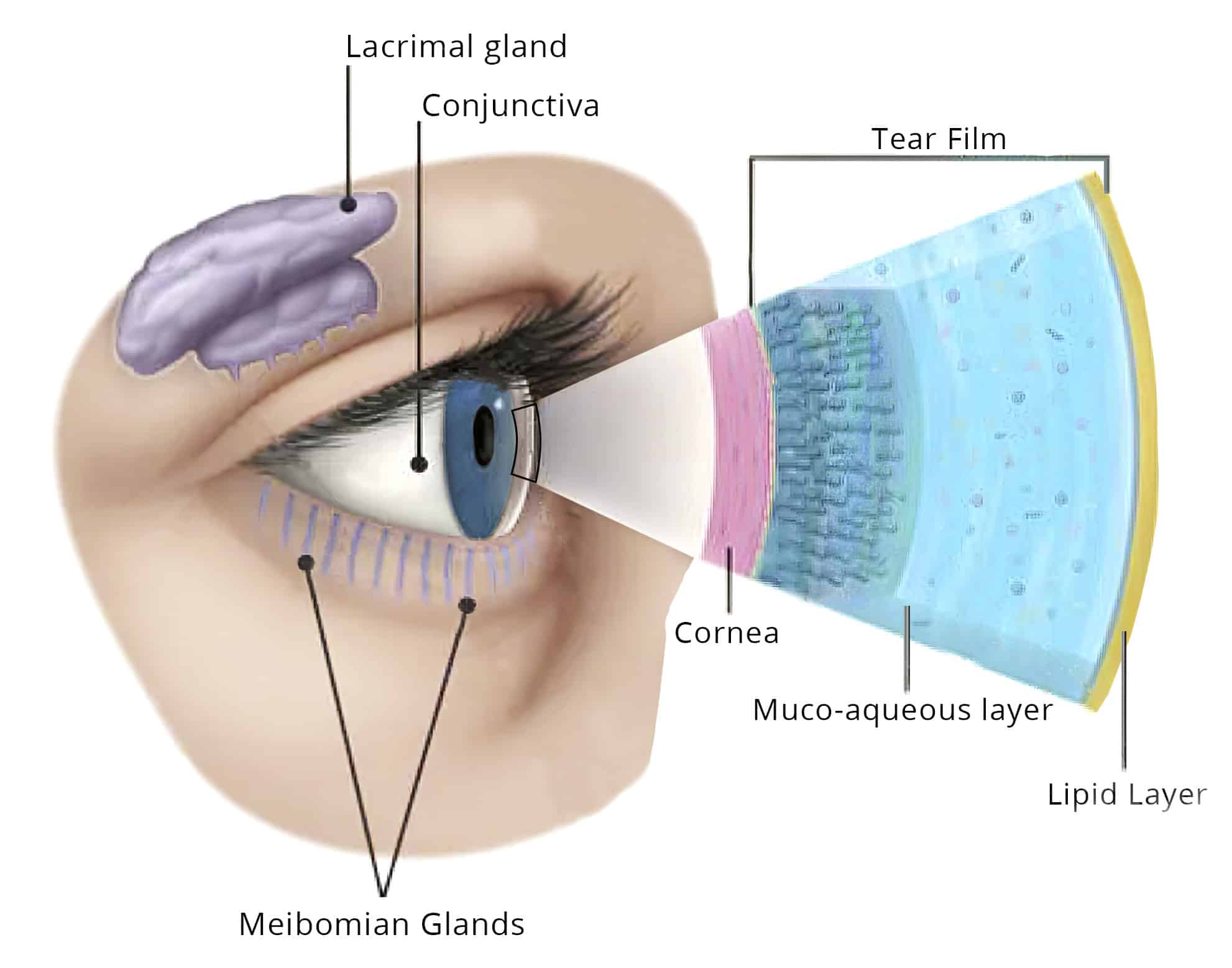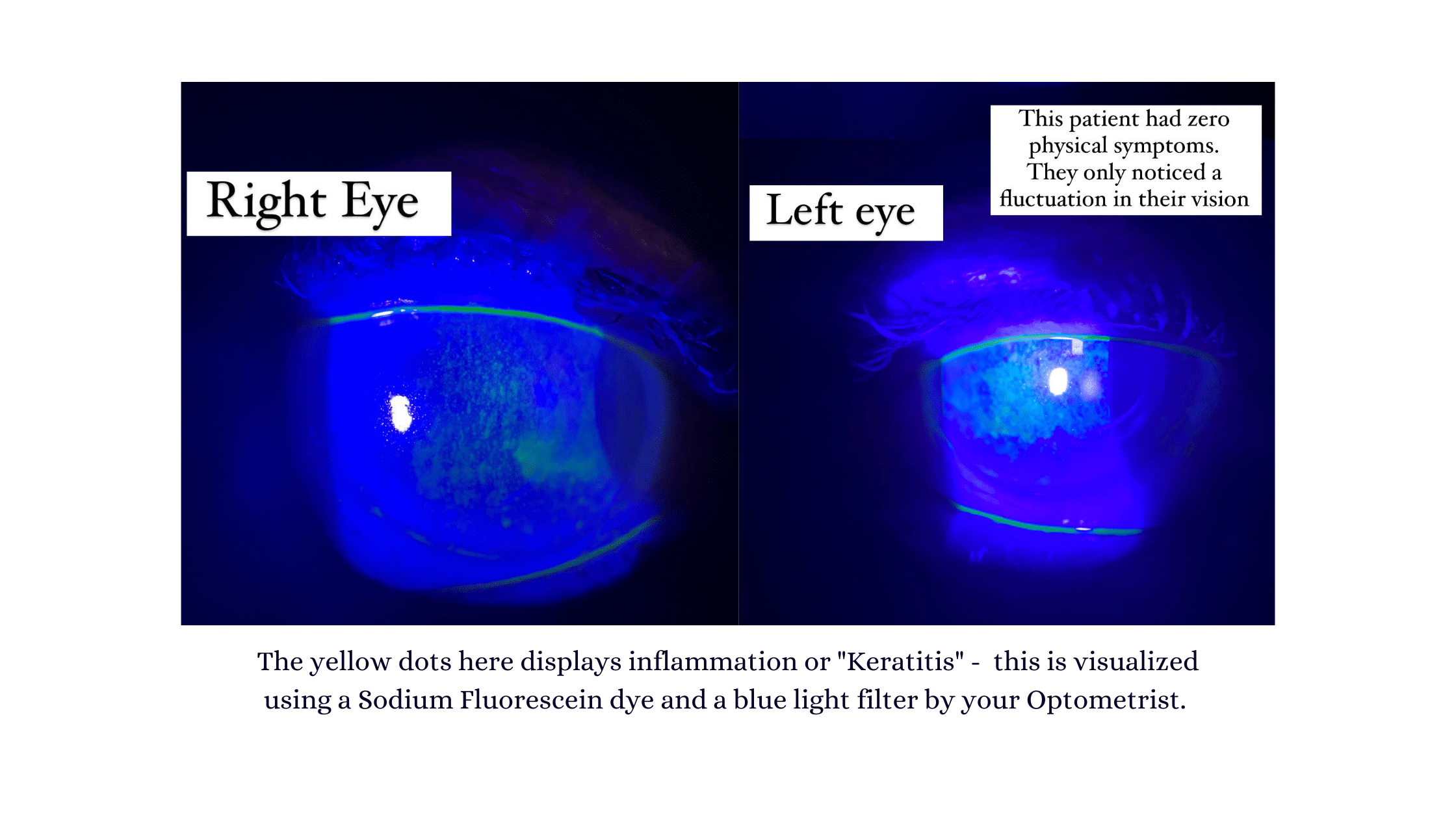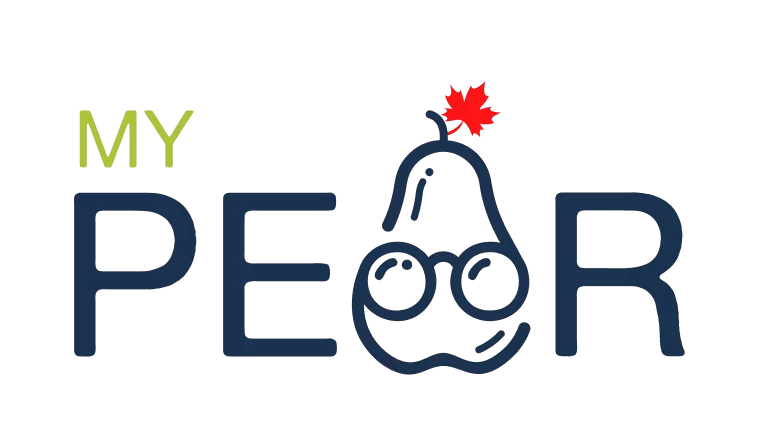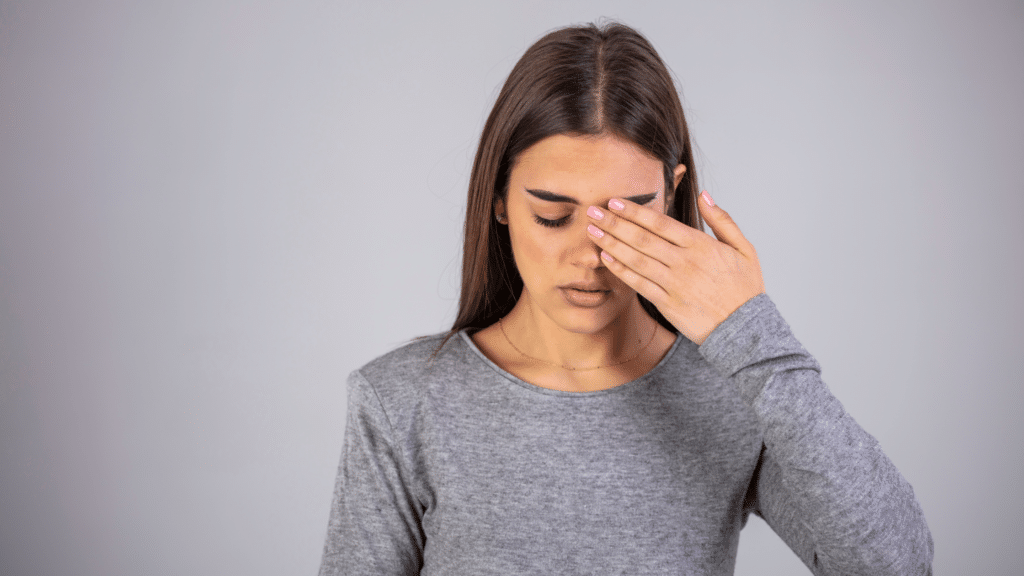Contact Lenses, Dry Eyes, Eye Care, Eye Hygiene
Can Dry Eyes Affect Your Vision?
Can Dry Eyes Affect Your Vision?
Dry Eye symptoms have plagued most of us at some point in our device dependent lives. Unfortunately, for some of us these symptoms can be chronic in nature. Many people will strenuously use eye drops and hope this resolves their symptoms. However, that usually doesn’t help as much as you’d think. It typically leads to patients stopping their eye drops or doing everything altogether for their Dry Eyes. This can lead to major problems. You may be asking yourself how can dry eyes affect your vision? Well, we will dive into that in this article today.
Although there is a long list of symptoms for Dry Eyes, a common symptom is often overlooked by most patients that we see: Fluctuating vision or inconsistent vision. You may think that your eyes are changing or that your prescription glasses or contact lenses may need to be updated. Optometrists already know what the culprit most likely is when a patient says that their vision isn’t good “sometimes” or that it’s better “after blinking.”
To help understand how vision can be affected by Dry Eye Disease, let’s first try to build a foundation about what Dry Eye Disease is.
What is Dry Eye Disease?
Without getting into the detailed science of it all, we can offer a simple definition of what Dry Eye is below:
Dry Eye is a multi-factor disease which occurs due to either: not producing enough tears, producing poor quality tears, or a mixture of both.
Additionally, a more detailed definition of Dry Eye Disease can be found here.
What are our tears made of?
Let’s break down what your tears or tear film are made of to help understand things more:
The tear film is comprised of 3 components:
- Mucus layer – keeps your tears on your eye and spreads them across evenly
- Water – hydrates the surface of the eye and helps to wash away allergens, bacteria, etc
- Oil – helps seal your tears in so that they don’t evaporate

What types of Dry Eye are there?
Most cases of Dry Eye fall into two categories:
- Aqueous Deficient Dry Eyes = not enough water content in your tear film ie. not producing enough tears
- Evaporative Dry Eye = not enough oil content in your tear film ie. your tears evaporate off the surface of your eye too quickly.
Evaporative Dry Eye Disease is the most common as roughly 85% of ALL Dry Eye sufferers will be diagnosed with this type. It’s often caused by a condition known as Meibomian Gland Dysfunction which involves blockage or obstruction of the glands in your eyelids that produce the oil component of our tears. This type of Dry Eye can lead to thinning or loss of these eyelid glands which can lead to many longterm issues.
What else can cause Dry Eyes?
There is a long, exhaustive list of what can cause Dry Eyes.
Here are some causes of Dry Eyes:
- Medications
- Antihistamines
- Mood stabilisers
- Antidepressants
- High blood pressure medications
- Decongestants
- Birth control
- Hormone replacement
- Pain relievers
- Acne medication
- Chemotherapy
- Anti-psychotics
- Stomach medications
- And many more!
- Health conditions
- Sjogren’s Syndrome
- Rheumatoid Arthritis
- Lupus
- Diabetes
- Scleroderma
- Menopause
- Grave’s Disease
- Pregnancy
- Other causes
- Contact lenses
- Dry, indoor conditions
- Poor blinking habits on a screen or while reading
- Vents in Car pointed at face
- Poor diet (low Omega 3s)
- Dehydration
- Alcohol use
- Marijuana use
- Smoking
What are some common signs and symptoms of Dry Eyes?
- Fluctuating vision
- Red eyes
- Itchy eyes
- Heavy or tired eyes
- Sore eyes
- Sandy or gritty eyes
- Foreign body sensation (feeling of something in your eyes)
- Watery eyes
- Light sensitivity
How do Dry Eyes Affect Your eyes?
Moderate to Severe Dry Eye can cause a lot of eye pain and discomfort. If left untreated, Dry Eye Disease can lead to vision changes and even permanent damage to the cornea. The cornea is a highly sensitive, dome shaped, clear covering on the front of your eye. It allows light to pass through your eye to your retina so that you can see. It is also the most highly sensitive part of your entire body so inflammation or injury here can be VERY painful.
Dry Eyes can cause inflammation, scarring and ulceration of your Cornea. Furthermore, this can also cause poor eye sight.
Corneal inflammation is medically known as Keratitis.

The symptoms of Keratitis include:
- Redness
- Watery eyes
- Light sensitivity
- Blurred Vision
- Pain or discomfort
- Difficulty keeping your eye open
- Feeling of sand or rocks in your eyes
If you are ever suffering from these symptoms, it is important to schedule an eye exam to have a proper diagnosis by an Optometrist or Ophthalomologist.
How can you prevent issues with your tear film?
Preventative eye care is the key to maintaining a healthy tear film. It is always best to see an eye care provider to get a diagnosis of the type of Dry Eye you have so that you can ensure that you are using the appropriate products.
A general rule of thumb for maintaining a healthy tear film includes:
- Using a preservative free artificial tear eye drops at least 2 times per day
- Ensuring you eat enough Omega 3 rich foods or supplement >2000mg/day (if your pharmacist approves)
- Maintain proper eye hygiene or “eyegiene” ie. proper application of makeup, thorough make up removal using natural products, replacing your make up every 3 months, and routinely cleaning your eyelids and eyelashes
- Use a warm compress (ex. Warm eye mask) to improve circulation to your glands.
How is Dry Eye Diagnosed?
Dry Eye Disease is diagnosed by an Optometrist or Ophthalmologist. I highly encourage you to schedule an exam with your eye doctor to determine what the cause of your dry eye is as specific products work better for certain presentations and causes of Dry Eyes.
In addition, MyPEAR offers a convenient Dry Eye Quiz that can help you see how dry your eyes are based on a symptom quiz. This does not provide a diagnosis of the cause of Dry Eye but it does help you see how severe your symptoms are which is important as you may not be doing enough to help your symptoms improve.
You can take the Dry Eye Quiz Here.
At the end of the day, a proper diagnosis helps you treat the underlying cause.

Dr. Davinder Sidhu is an award-winning Optometrist and a lead eye-care advisor for MyPEAR.
Instagram: @TheGenuwineOD



